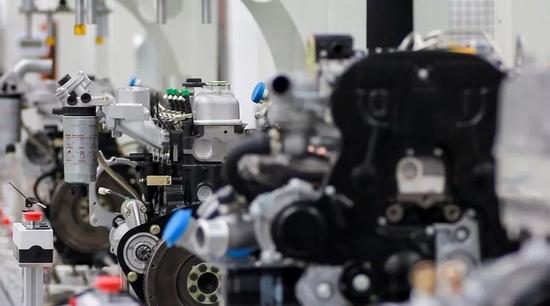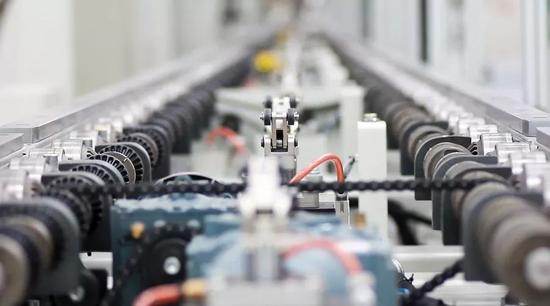It is no longer a novelty that Japan’s manufacturing industry has gone down to the altar.
Toshiba could not continue to sell its flash memory business because of insolvency, and Takata had bankruptcy due to problems. Panasonic, Sharp, Sony and other companies fell into a quagmire of losses and sold their assets. Kobe Steel was even stunned by long-term data fraud.
However, does Japan's proud manufacturing industry completely fail?
On January 13, the 2018 China Manufacturing Forum was held in Foshan, Guangdong Province. At the forum's plenary session in the morning, experts and scholars from the State Council, the National Development and Reform Commission, and the Ministry of Industry and Information Technology of the People's Republic of China carried out serious discussions on the transformation and upgrading of China's manufacturing industry under the new global industrial revolution.

â–²Photo source: Every reporter Chen Pengli photography
Daily economic news (micro-signal: nbdnews) The reporter noted that as a competitor, domestic scholars still maintain a very clear understanding of the strength of Japanese manufacturing.
According to Cai Hongping, founder of the Hande Industrial 4.0 Fund and former executive chairman of the Deutsche Bank Asia-Pacific Investment Bank Asia Pacific, many people think that Japan's manufacturing is no longer the case, but this is not the case. Japanese companies have been quietly transformed and upgraded, but the outside world has not learned enough. . "For example, all of Tesla's batteries are Panasonic."
For the current Chinese automatization reform, Cai Hongping also has his own views. He said that automation is not a thing of the past, and traditional manufacturing upgrades are promising.
Under the global economic situation, Chinese enterprises must "go out"
On the morning of January 13th, at the 2018 China Manufacturing Forum, several experts and scholars discussed the topic of “Global Economic Transformation and Made in Chinaâ€.
Xin Renzhou, inspector of the Industrial Policy Department of the Ministry of Industry and Information Technology, pointed out that China's manufacturing industry faces many problems, but its advantages are also numerous. China has at least three major advantages, namely, the advantages of the ultra-large-scale market, the most complete advantages of the industry chain, and the country. Great potential for innovation.
However, Xin Renzhou said that trade protectionism, the disappearance of demographic dividend, and constraints on resources and environment have brought challenges to China’s manufacturing costs.
Faced with this situation, Zhang Yansheng, a researcher at the National Development and Reform Commission’s academic committee, said that in the past 30 years, Chinese enterprises have enjoyed the dividends of globalization, and now they are going out. The “One Belt and One Road†is an opportunity for companies to complete phased industrial transfer.

â–² picture irrelevant picture source: photo network
Xu Zhaoyuan, director of the fourth research department of the Department of Industrial Economics Research at the Development Research Center of the State Council, said that the world is undergoing a new round of industrial revolution, and a series of technologies such as artificial intelligence, new energy technologies and 3D printing are affecting the global manufacturing landscape. The importance of low-cost labor in the global manufacturing industry has been significantly reduced. The importance of economies of scale and supporting industries is also decreasing, and the importance of the manufacturing base is also decreasing.
Xu Zhaoyuan believes that
"In the short-term, the trend of shifting middle and low-end manufacturing to India and Vietnam will slow down. Like developed countries, the United States, Japan, and Germany are also implementing the return of manufacturing.
In the long run, the pattern of global manufacturing division of labor will be characterized by decentralization and localization, which means that the manufacturing industry will gather at the consumer sites. In the face of this trend, it is necessary for enterprises to step up and go abroad, especially to increase the pace of going abroad for developed countries.
In the past, it was more to use China's low-cost advantages to produce in China and sell our products to the world. In the future, we should strengthen production in other countries. â€
Zhang Yansheng said that China's manufacturing has shifted from OEM to autonomy, from low-end to high-end, and “One Belt and One Road†is a required course. How to make good use of the “One Belt and One Road†to promote Chinese companies to go global has important implications for the transformation of manufacturing in Foshan and even in the country.
Zhang Yansheng honestly believes that most of the Foshan enterprises do not have the strength to compete with global multinational companies, but the weakest place for global multinational companies is in the “Belt and Roadâ€. In the future, the window of opportunity for cross-border mergers and acquisitions by Chinese companies may be closed due to the rise of protectionism, and private enterprises in Foshan can grasp the “One Belt and One Road†opportunity and dividends.

â–² picture irrelevant picture source: photo network
Cai Hongping warns that Chinese companies must also pay attention to risks in the process of investing in countries along the “One Belt and One Road†initiative.
"All Tesla batteries are Panasonic"
Talking about China's manufacturing industry, Cai Hongping mentioned the word "calm".
He believes that there is a misunderstanding that the white goods we saw in the early years were all Japanese, but now that Japan’s home appliances are gradually declining, some people say that Japan’s manufacturing industry is not working. In fact, Japanese manufacturing has long since upgraded from traditional industries.
"Japan's GDP is still the third largest in the world. What is the point?
I told you that it has been upgraded very quickly. It just did not tell everyone. For example, all of Tesla's batteries are Panasonic's. â€
For the upgrading and transformation of Chinese companies, Cai Hongping said that the current upgrading of China’s traditional industries is promising.
For example, ceramics can be sprayed and sliced ​​after being intelligentized, and can be made to be exactly the same as marble. A product has great promise. Another example is the toilet, the second-generation toilet is an electromagnetic toilet, the third-generation toilet is a smart toilet, and the smart toilet can realize that a person can sit up and blood pressure and blood fat are all measured.
However, Cai Hongping also bluntly said that China's automation upgrades are too hype.
"When the new industrial revolution arrives, we must not go in for fashion. We must be careful not to think that we must engage in artificial intelligence in the traditional industries. We must engage in electric vehicles. Not necessarily."